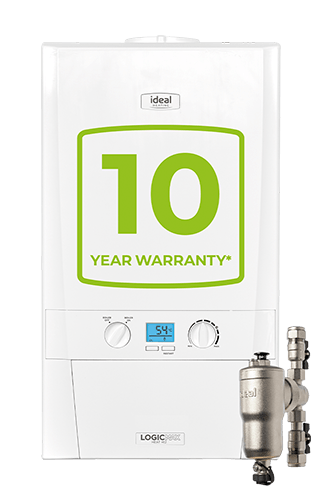Selecting the right boiler type is a significant decision that affects your home's comfort and energy efficiency. This comprehensive guide examines the three main boiler types available, helping you understand their strengths and limitations to make an informed choice.
Types of Boilers

Combi Boilers
Combination boilers, commonly known as combi boilers, have become the most popular choice in UK homes, particularly for smaller properties. These innovative units combine a water heater and central heating boiler in one compact system.
How Combi Boilers Work
Combi boilers heat water directly from the mains when you turn on a tap, eliminating the need for separate storage tanks or cylinders. This direct heating approach offers several advantages:
Advantages
- Space efficiency with no need for water tanks or cylinders
- Instant hot water delivery without waiting for storage tanks to heat up
- Lower installation costs due to fewer components
- Reduced energy bills as water is heated only when needed
- Cleaner, fresher water as it comes directly from the mains
Limitations
The main consideration with combi boilers is their simultaneous use capacity. Water pressure may decrease when multiple taps or showers run at once, making them less suitable for:
- Larger households with high simultaneous water demand
- Properties with multiple bathrooms
- Homes where several people shower at the same time
Additionally, if the boiler develops a fault, both heating and hot water are affected simultaneously.
Conventional Boilers
Conventional boilers, also called regular or heat-only boilers, represent the traditional heating system found in many older properties. These systems use multiple components to provide reliable heating and hot water storage.
How Conventional Boilers Work
A conventional boiler heats water and stores it in a separate hot water cylinder. Cold water from a tank in the loft feeds the system, and an additional expansion tank manages the water level in the heating circuit. When you turn on a hot tap, stored hot water from the cylinder flows to where it's needed.
Advantages
- Excellent performance in properties with low water pressure
- Ability to supply multiple hot water outlets simultaneously
- Consistent water pressure even with heavy usage
- Hot water available even if the boiler temporarily fails
- Ideal for properties with traditional heating systems
- Can work with solar thermal systems
Limitations
The main considerations for conventional boilers include:
- Requires substantial space for multiple components
- Needs loft space for water tanks
- More complex installation process
- Higher initial installation costs
- Potential heat loss from stored water
- Stored hot water can run out and need time to reheat
System Boilers
System boilers provide a middle ground between combi and conventional systems, offering efficient heating and hot water storage while simplifying the traditional setup.
How System Boilers Work
System boilers heat water and pump it to both the radiators and a hot water cylinder. Unlike conventional boilers, they take water directly from the mains and have most components built into the boiler itself, eliminating the need for loft tanks.
Advantages
- Requires less space than conventional systems
- More straightforward installation process
- Consistent hot water supply to multiple outlets
- Good performance with normal to high water pressure
- Most components integrated within the boiler
- Compatible with solar thermal systems
- Lower maintenance requirements
Limitations
System boilers come with several considerations:
- Still requires space for a hot water cylinder
- Stored hot water can run out during heavy usage
- Higher initial cost than a combi boiler
- Some heat loss from stored water
- Less suitable for properties with low water pressure
- Installation more complex than combi boilers
Need help choosing the right boiler for your home?
Our heating engineers in Chelmsford, Dunmore and Bishops Stortford are here to help. Simply call us on 07956575049.


